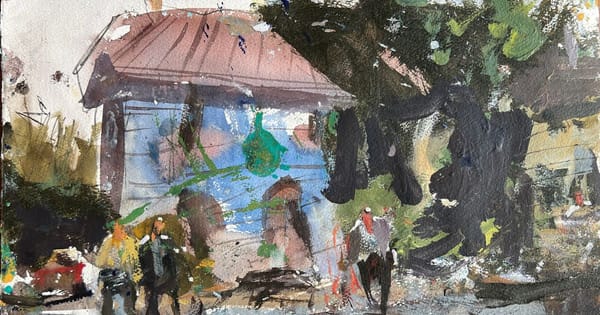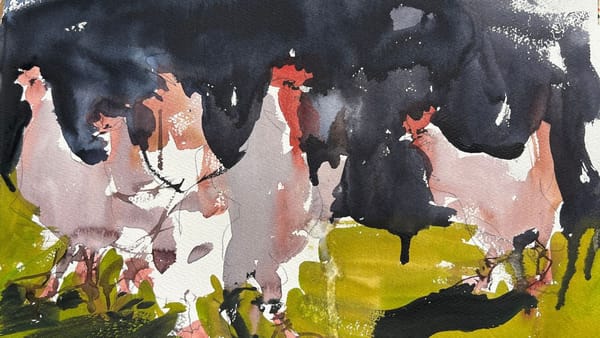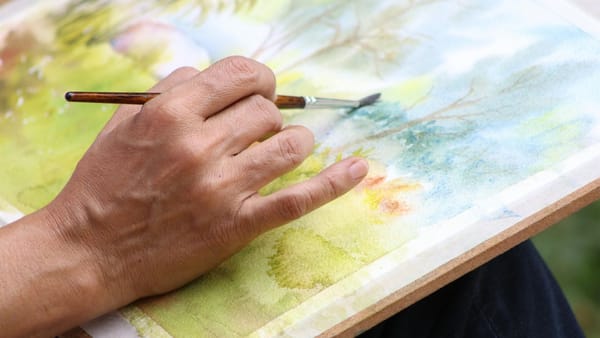How to Paint Trees with Watercolors Lesson
Complete guide on how to paint trees with watercolors. Learn to capture the beauty of nature using these easy to follow beginner techniques!
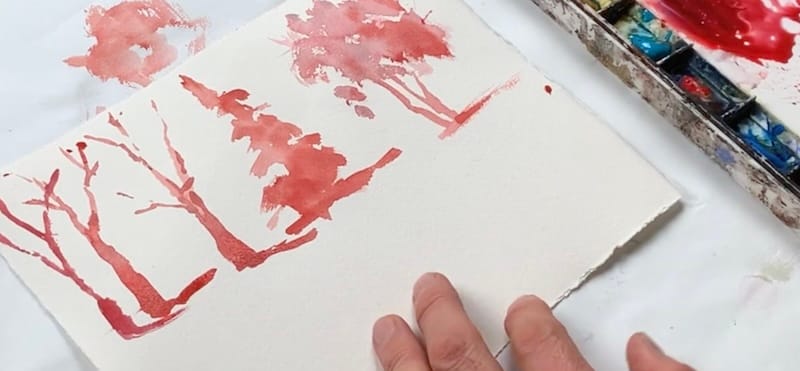
Are you ready to immerse yourself in the enchanting world of watercolor tree painting? Join me on a creative journey as we delve into the step-by-step tutorials that will unlock your artistic potential.
Whether you’re a beginner seeking simplicity or an experienced artist looking to refine your skills, these techniques will empower you to create stunning watercolor trees with ease.
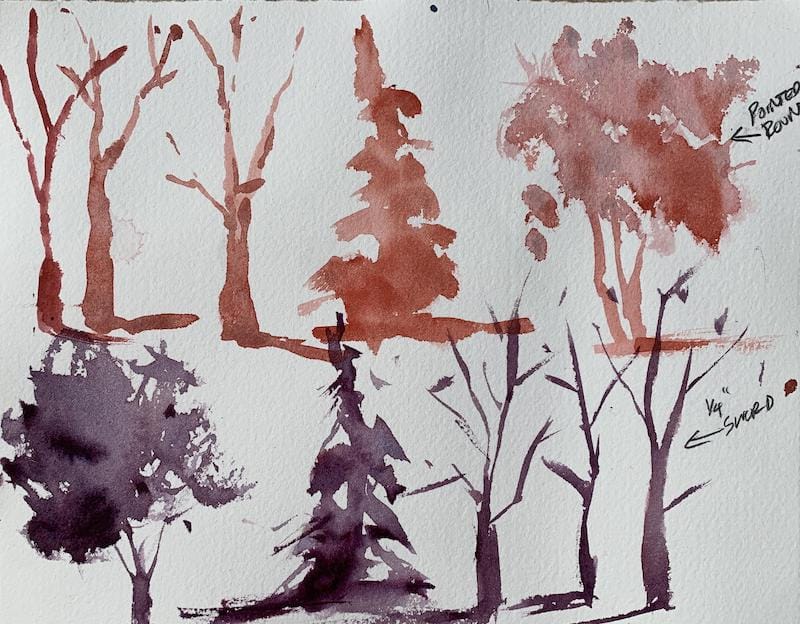
Let’s start painting awesome trees with watercolors
By simplifying the complexities of tree painting, you’ll gain confidence and find your artistic groove. This general model provides a solid foundation that can be customized to suit your style and preferences, allowing you to adapt and evolve as you progress.
In Tutorial One, we’ll explore the step-by-step process for painting a simple tree
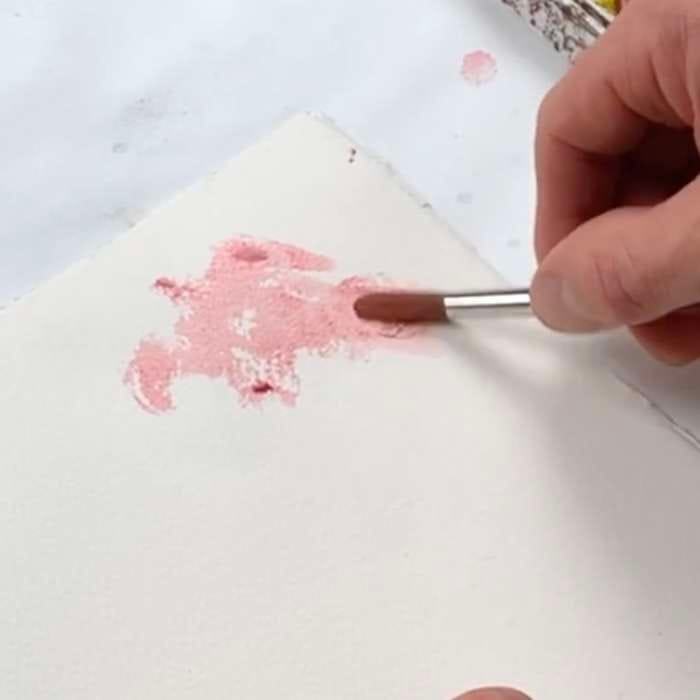
Step one: Begin with the technique of scumbling, delicately applying paint using the side of the brush to create a textured effect. Remember to leave sky holes, allowing glimpses of the sky through the leaves.
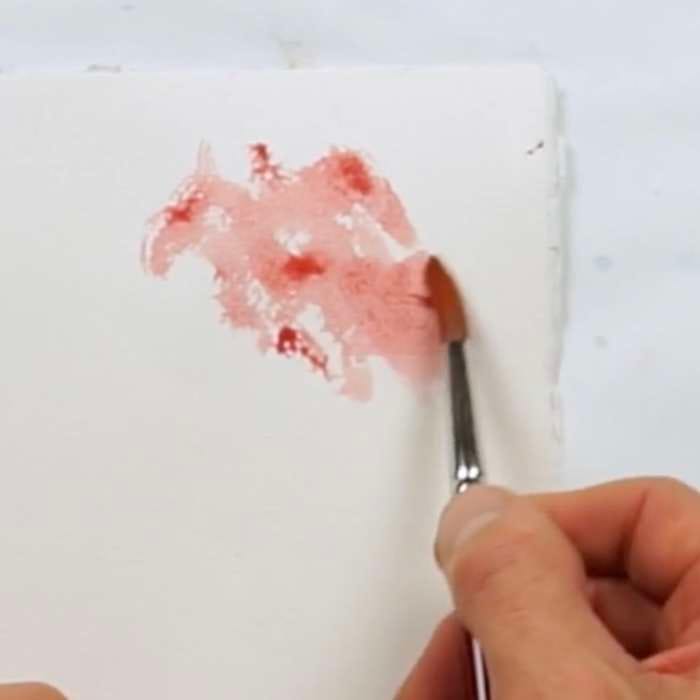
Step two: Next, charge the color by layering thicker paint onto the initial wash, adding depth and dimension.
Step three: Finally, capture the essence of the tree trunks by painting them in short sections, varying brush angles to mimic the natural irregularity of tree forms.
Tutorial Two unveils the secrets of painting pine trees with watercolors
Using the same fundamental steps as in the previous tutorial, we’ll modify our approach to capture the unique characteristics of pine trees.
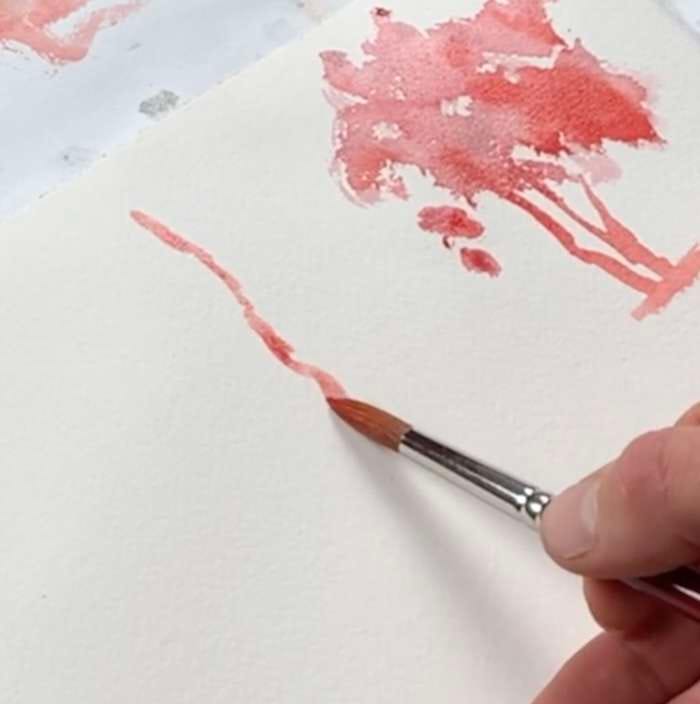
Step one: Start by painting the trunk with the tip of the bristles, gradually increasing thickness towards the base.
Step two: Use the scumbling technique to depict the intricate needles and branches, employing horizontal strokes and varying pressure to achieve a realistic texture.
Step three: Once again, charge the color to infuse the tree with richness and depth.
In Tutorial Three, we embrace the winter landscape tree
This approach allows you to paint a leafless trees that evoke the serenity of the season.
Step one: An interesting twist awaits as we turn the paper upside down, allowing for unpredictable and captivating tree trunks. Begin with bold strokes at the base, gradually decreasing pressure as you ascend towards the top. Add delicate branches and employ charging techniques to imbue the painting with a sense of winter’s ethereal beauty.
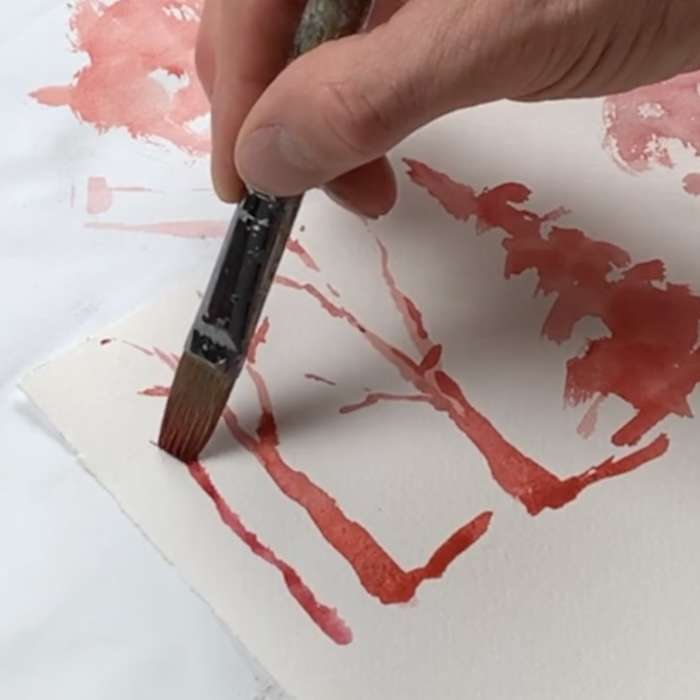
Step two: For those eager to experiment and push the boundaries of traditional techniques, I encourage you to try alternative brushes such as bristle brushes or the fan brush. Embrace the textured effects they can create, adding a new layer of interest to your tree paintings.
Remember, you don’t need to paint every leaf on the tree; focus on capturing the essence of the subject by highlighting the most significant elements and shaping the outer silhouette.
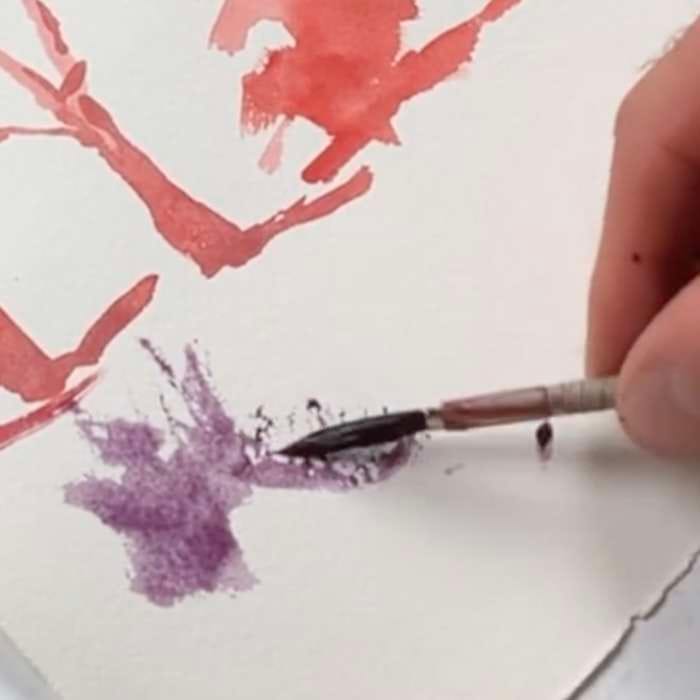
Step three: Finally, unleash your creativity with a dagger brush, employing scumbling techniques to create lush clusters of leaves. Charge the colors to bring vibrancy and realism to your artwork, and add the finishing touch of tree trunks to ground the composition. Embrace the joy of experimentation, for it is through exploration that we truly grow as artists.
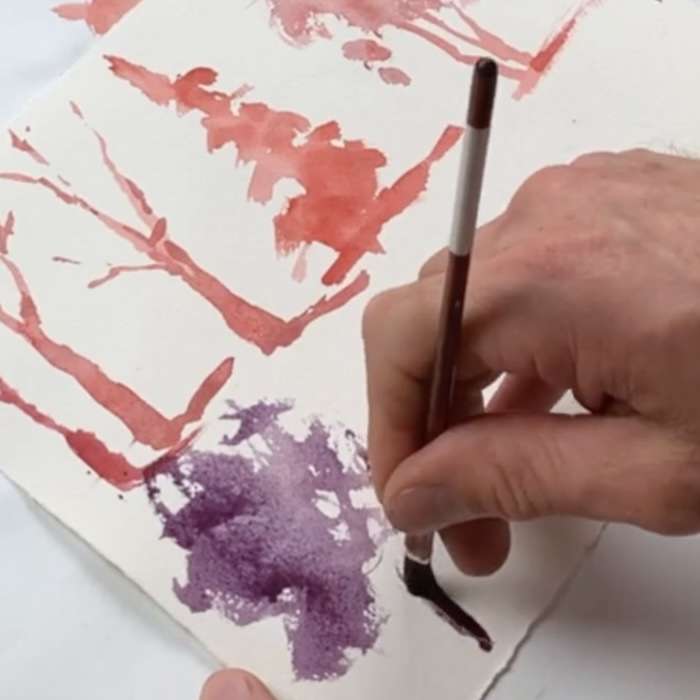
Step four: As you continue on your watercolor tree painting journey, remember to have a general model in place to guide your artistic decisions while leaving room for personal interpretation. Allow your imagination to flourish and your skills to flourish as you immerse yourself in the serene beauty of watercolor tree painting. With practice and persistence, you’ll witness your landscapes come to life with breathtaking realism and artistic expression.
Final thoughts
In conclusion, I hope this comprehensive tutorial has inspired you to pick up your brushes and embark on the delightful adventure of painting watercolor trees. Whether you choose to paint simple trees, pine trees, or leafless winter trees, these techniques will empower you to create your own masterpiece.
So gather your supplies, unleash your creativity, and let the beauty of nature inspire your artistic endeavors. Remember, if you have any questions or need further guidance, don’t hesitate to reach out. Happy painting!
